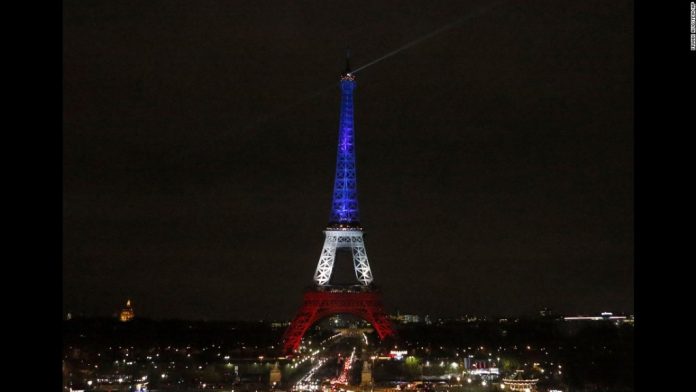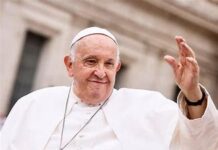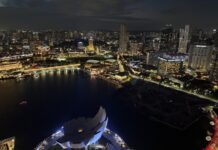“This is an attack not just on Paris, it’s an attack not just on the people of France, but this is an attack on all of humanity and the universal values that we share.”
These words spoken by President Obama in light of the senseless violence in Paris, France from last Friday fills the Briefing Room. The search for the suspects coupled with multiple reports of imminent terror threats, along with a threat video released on Thursday, the world has utilized the event as a call to action to combat extremism wherever it pervades. Contrastingly, Facebook, in light of the attacks, has offered a ’cause-filter’ dedicated to France, allowing users to apply a red, white, and blue filter to their existing profile photo. Such campaigns have sparked vehement debate on whether or not this action actually sends the intended message of awareness. Whichever outlook on the situation that you, the reader, may take, humanity as a whole has recognized the value of their life, along with the sorrow and pain that France has endured in the past week. This recognition resultant from the trauma of the events in Paris has taken a foothold in the halls of Jesuit, opening forums for discussion and drawing an opinion from many faculty and students. Below are a handful of their thoughts, reactions, and prayers for France.
For Noah Jennings ’17, his first encounter with the news came on Friday afternoon, resulting in speechlessness from the high school junior. He explained that he “was watching it over the news… I don’t know how to explain it because I didn’t even have anything to say. I was so in shock about it, like someone actually did this and people were trying to enjoy a concert.” He concluded, “That was just terrible, I can’t say anything else besides that.” Similarly, Spencer Vilicic ’17 first heard of the brutal attacks on Paris over Twitter Friday afternoon. He recalled that his initial sentiment was that of “disbelief because you think of Paris of ‘The City of Love.'” He was most disturbed at the contrast of thought in that “[Paris is] like a really tranquil place and then it’s disrupted by violence.”
Hearing full coverage on the events later Friday, Vance Holub ’17 recalled that he “heard the announcer ask us to pray for France, and I paused, since I didn’t know what he was talking about. My initial thoughts were that a terror attack or natural disaster must have occurred. Learning about the attacks in full that night, Holub “was speechless. By the time I discovered what was happening, the estimated death toll was over 100.” Given these attacks, Holub believes that “there is no easy or surefire way to prevent [terror attacks]. The best way, it seems to me, is to have constant surveillance of everyone’s communications and Internet activity. However, I’m not sure I, or many other people, are willing to completely give up their privacy like that.” Holub sees these events as ammunition for attacks on “Islam, calling it a religion of hatred and intolerance. ” He added that ” the biggest problem we have with events like this is generalizing or stereotyping entire demographics or populations as a result. This is a serious danger. When we do that, we surrender our ability to look into the issue, gather information, and formulate a reasonable opinion.”
Marlin Walkup ’17 first heard about the attacks via “the prayer that the band does before we go out to the stadium [for band].” After learning about the event in its entirety, Walkup realized “how important it is to appreciate the people in your life because anything this senseless and violent can happen at any time.” Like many American young adults, the ubiquity of news sources, offering many points of view to a single topic, can “[put] the fear into everyone’s mind that it can happen anywhere,” said Walkup. “Rather than covering boring subjects like what celebrity did what, media will start to focus on the fighting in the Middle East with ISIS/ISIL/IS and in Africa with Boko Haram,” he concluded.
From a faculty perspective, Mr. Jonathan Segal first heard about the attacks in France through a friend over text. He remarked, “Unfortunately, it is difficult for me to see where this results in something positive.” Regarding the impending refugee situation growing more and more salient in the US, Segal is “hopeful that this attack does not cause us to turn our backs on refugees. Many of them have experienced horrors like the Paris attack for a prolonged period of time. The USCCB and Pope Francis have both called on countries to be accepting of refugees and it seems to me that rising above fears and uncertainties and offering shelter and aid to those who need it is the right thing to do.” He continued, “This is a chance to show our best selves to the world. It is difficult to see how attacks like these can be prevented using traditional methods. The best way to work for peace is to work for a more just society where people do not feel a need or desire to be violent.
Finally, Ms. Elise Stewart, French Teacher as well as faculty counselor first heard about the attacks from Mr. Mike Earsing’s secretary. Her first reaction was that she “said a prayer and then I thought, ‘This is so awful, but not unusual.’ because Paris (and it’s not often reported in the US) has an enormous number of terrorist acts, just not as coordinated or as publicized as this one.” She elaborated, “I was talking to my students about the fact that, for many years now, France has had close to 20% unemployment rate in young men between [the ages of] 17 and 25. Probably 75% of that age group that’s unemployed are young men with Arabic surnames. That doesn’t mean that they’re Muslim, that doesn’t mean that they’re not Muslim. What it means is that they have an Arabic surname, and with an Arabic surname, in France, it’s almost impossible to get a job.” The growth of negative sentiment towards the large middle Eastern community in France certainly plays into the conversation, for she believes that “all of the United States, all of our abilities, all of Europe’s ability and, very specifically, France’s abilities need to be inviting those young men who are educated, despite the fact that they have an Arabic surname, which is silly, they need to get them involved… in a way that will pull people together and not ferment this terrorism against anything that is not these radical groups.” She concluded, “I think that the thing we can get out of that is we need to be sure that we are living the life we have, the way we want to be remembered. Who do we say that we are? For Jesuit students, the people who we say we are are people building the kingdom of God. Knowing that we are going to die… gives us a shortened amount of time to be cognizant of the time you have and how you’re spending it.”
All points considered, the conversation, whether salutary or detrimental to the future of the world, started as a result of the Paris attacks will continue as long as the perceived threat of terror and senseless violence plagues the world. Not to say that Paris will be a ‘blip on the radar’ relative to other attacks, but it will remain a crucial piece for the world community to put in the context of others in order to strive towards lucidity and closure in the face of violence. As Jesuit students, the turbulent world we enter into will compete and quarrel with these same issues as we seek to truly become “Men for Others.” We best listen now.






